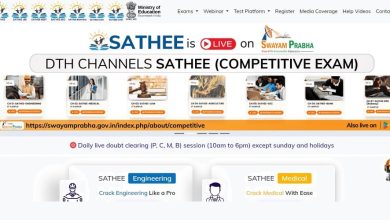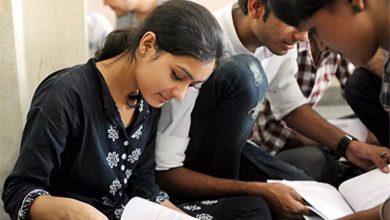UGC Warns Students Against Taking Admission To Online PhD Programmes By EdTech Companies
The UGC notice in a newspaper advertisement reads: “In order to maintain the standards for awarding PhD degrees, the UGC has notified the UGC (Minimum Standards and Procedure for Award of MPhil, PhD degrees) Regulation 2016.

Online PhD Programmes: The University Grants Commission (UGC) has issued a cautionary statement stating that it does not recognise online PhD programmes offered by EdTech businesses in partnership with foreign educational institutions. All higher education institutions are required to abide by UGC norms and its revisions in order to provide PhD degrees to students, according to the UGC.
The UGC notice in a newspaper advertisement reads: “In order to maintain the standards for awarding PhD degrees, the UGC has notified the UGC (Minimum Standards and Procedure for Award of MPhil, PhD degrees) Regulation 2016. It is mandatory for all Indian Higher Educational Institutions (HEIs) to follow UGC Regulations and its amendments for awarding PhD degrees”.
“Students and public at large are hereby advised not to be misled by the advertisements for online PhD programmes offered by EdTech companies in collaboration with foreign educational institutions. Such online PhD programmes are not recognised by the UGC. Aspiring students and the public at large, are requested to verify the authenticity of PhD programmes as per UGC Regulation 2016 before taking admission,” AICTE UGC further added.
In March 2022, the UGC proposed amending the rules governing PhD programmes. The UGC (Minimum Standards and Procedure for Award of MPhil, PhD degrees) 2022 recommended that students who passed the UGC National Eligibility Test (NET) or Junior Research Fellowship (JRF) fill 60% of the available PhD seats, with the remaining 40% of seats to be filled by university entrance exams.
About University Grants Commission (UGC):
The first attempt to formulate a national system of education in India came In 1944, with the Report of the Central Advisory Board of Education on Post War Educational Development in India, also known as the Sargeant Report. It recommended the formation of a University Grants Committee, which was formed in 1945 to oversee the work of the three Central Universities of Aligarh, Banarasand Delhi. In 1947, the Committee was entrusted with the responsibility of dealing with all the then existing Universities.
Soon after Independence, the University Education Commission was set up in 1948 under the Chairmanship of Dr. S Radhakrishnan “to report on Indian university education and suggest improvements and extensions that might be desirable to suit the present and future needs and aspirations of the country”. It recommended that the University Grants Committee be reconstituted on the general model of the University Grants Commission of the United Kingdom with a full-time Chairman and other members to be appointed from amongst educationists of repute.
In 1952, the Union Government decided that all cases pertaining to the allocation of grants-in-aid from public funds to the Central Universities and other Universities and Institutions of higher learning might be referred to the University Grants Commission. Consequently, the University Grants Commission (UGC) was formally inaugurated by late Shri Maulana Abul Kalam Azad, the then Minister of Education, Natural Resources and Scientific Research on 28 December 1953.
The UGC, however, was formally established only in November 1956 as a statutory body of the Government of India through an Act of Parliament for the coordination, determination and maintenance of standards of university education in India. In order to ensure effective region-wise coverage throughout the country, the UGC has decentralised its operations by setting up six regional centres at Pune, Hyderabad, Kolkata, Bhopal, Guwahati and Bangalore. The head office of the UGC is located at Bahadur Shah Zafar Marg in New Delhi, with two additional bureaus operating from 35, Feroze Shah Road and the South Campus of University of Delhi as well.







